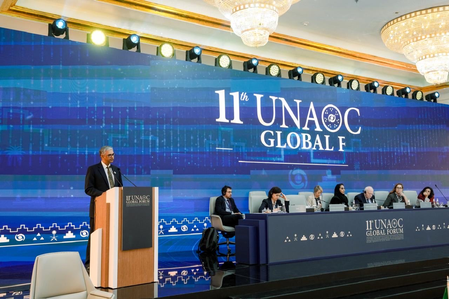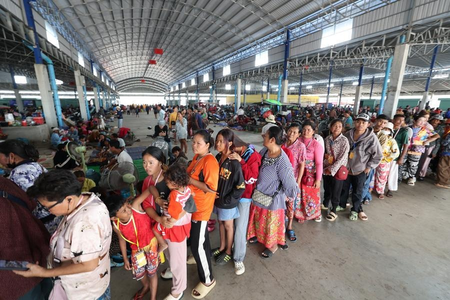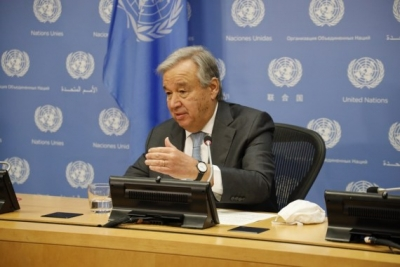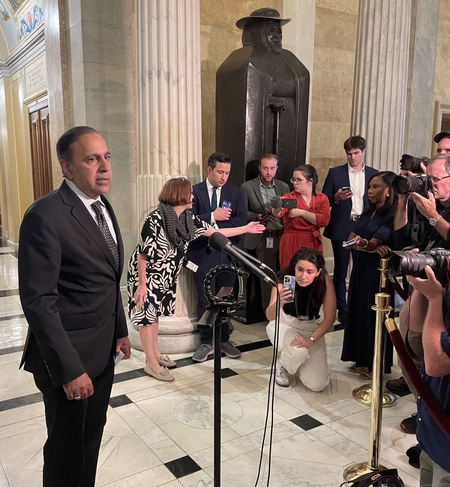
New Delhi, April 30 (IANS) Pakistan Defence Minister Khwaja Asif’s admission on country’s role in harbouring terrorists and sponsoring terror factories on its soil recently, came not just as a shocker but also exposed its brazen terror designs as well as terror trail, that remains not just limited to Kashmir but goes beyond many frontiers, even to the Islamic nations, Middle-East and Europe.
Pakistan’s terror footprints across the globe got more accentuated with Pakistan’s Defence Minister’s open confession on the country’s history of supporting terrorist organisations, as he said, “We have been doing this dirty work for the US for the past three decades, including the West and the UK.”
The bloodbath in Kashmir’s Pahalgam is the latest dastardly act of terror, conducted by Pakistan-based terrorists, plotted and guided by handlers based there. A key Pakistan link is emerging here also, as Hashim Moosa, who served in the Pakistan Army earlier, has been found to be one of the key attackers in Baisaran valley. A massive manhunt is underway to nab Moosa, the former para commando in Pakistan’s Special Services Group, who then switched to Lashkar-e-Taiba (LeT) to conduct terror strikes in India.
For many years, Pakistan has used its soil as a launchpad for cross-border terrorism, insurgency, and extremist ideology. Its track record in sponsoring, sheltering, and exporting terrorism is one of the most dangerous and destabilising forces in the world.
In 2018, former Pakistan Prime Minister Nawaz Sharif also admitted to the Pakistani government’s role in the 2008 Mumbai attacks, carried out by Lashkar-e-Taiba. Former Pak Army General Pervez Musharraf had also conceded that his forces trained militant groups to fight India in Kashmir.
An account of how Pakistan is exporting terrorism globally
Afghanistan: Taliban and Haqqani network attacks
Pak-based terror groups were found to be the key conspirators behind numerous deadly attacks on Afghan civilians, government targets and international forces, including the 2008 Indian Embassy bombing in Kabul and the 2011 attack on the US Embassy in Kabul.
Pakistan’s ISI (Inter-Services Intelligence) has been widely documented as supporting the Afghan Taliban and the Haqqani Network, providing them with funding, training, and safe havens.
Its role in the Indian Embassy bombing in Kabul was also documented in a book by senior journalist Carlotta Gall, who wrote, “The embassy bombing was no operation by rogue ISI agents acting on their own. It was sanctioned and monitored by the most senior officials in Pakistani intelligence.”
Iran: Jaish ul-Adl Attacks
Pakistan-based Sunni extremist group Jaish ul-Adl repeatedly attacked Iranian security forces in Sistan and Baluchestan province. In response, Iran carried out missile and drone strikes inside Pakistan’s Balochistan province, targeting what it described as Jaish ul-Adl hideouts.
Iran has repeatedly accused Pakistan of harbouring and failing to act against Sunni militants who stage attacks across the border.
Moscow Concert Hall Attack (2024)
In April, a Pakistan link emerged in the investigation of the Moscow terror attack. Russian authorities identified the mastermind as a Tajik national and are probing connections to Pakistan, with reports suggesting that the attackers may have had logistical or ideological support tracing back to Pakistani networks.
United Kingdom: 2005 London Bombings
The July 7 London bombings, carried out by four British Islamist terrorists, were linked to training and indoctrination in Pakistan. Three of the bombers — Mohammad Sidique Khan, Shehzad Tanweer, and Germaine Lindsay had spent time in Pakistan between 2003 and 2005, getting trained in terror-training centres.
Osama bin Laden’s elimination exposed Pakistan globally
In the 2011 US raids that killed Al-Qaeda leader Osama bin Laden in Pakistan’s Abbottabad, it exposed Pakistan’s brazen defence of the dreaded terrorists and also exposed its systemic failure in counterterrorism efforts.
Bin Laden lived undetected for years in a compound near Pakistan’s Military Academy, affirming the Pakistan government’s protection and alleged collusion.
–IANS
mr/dpb




